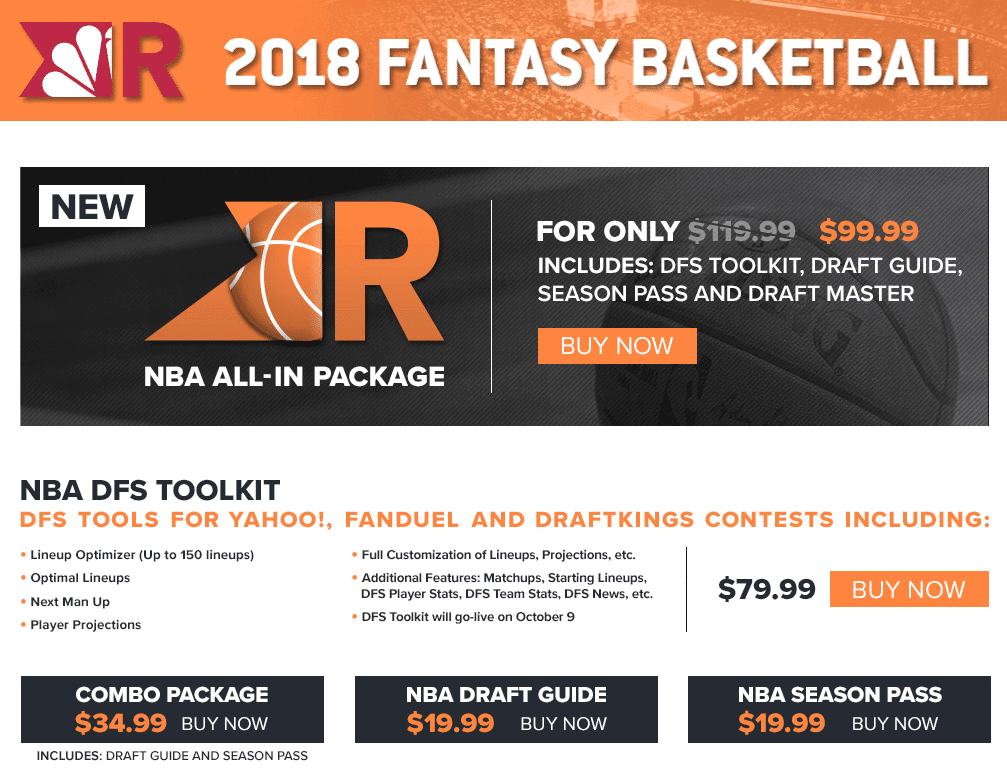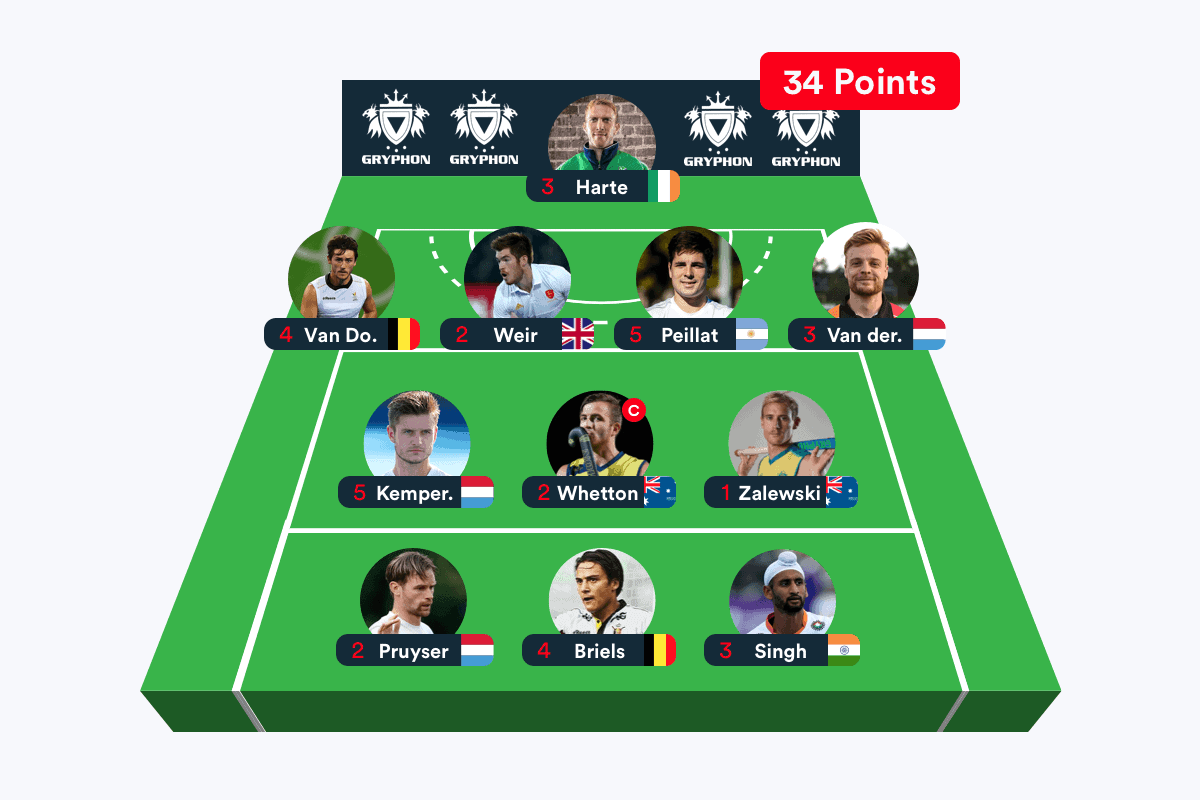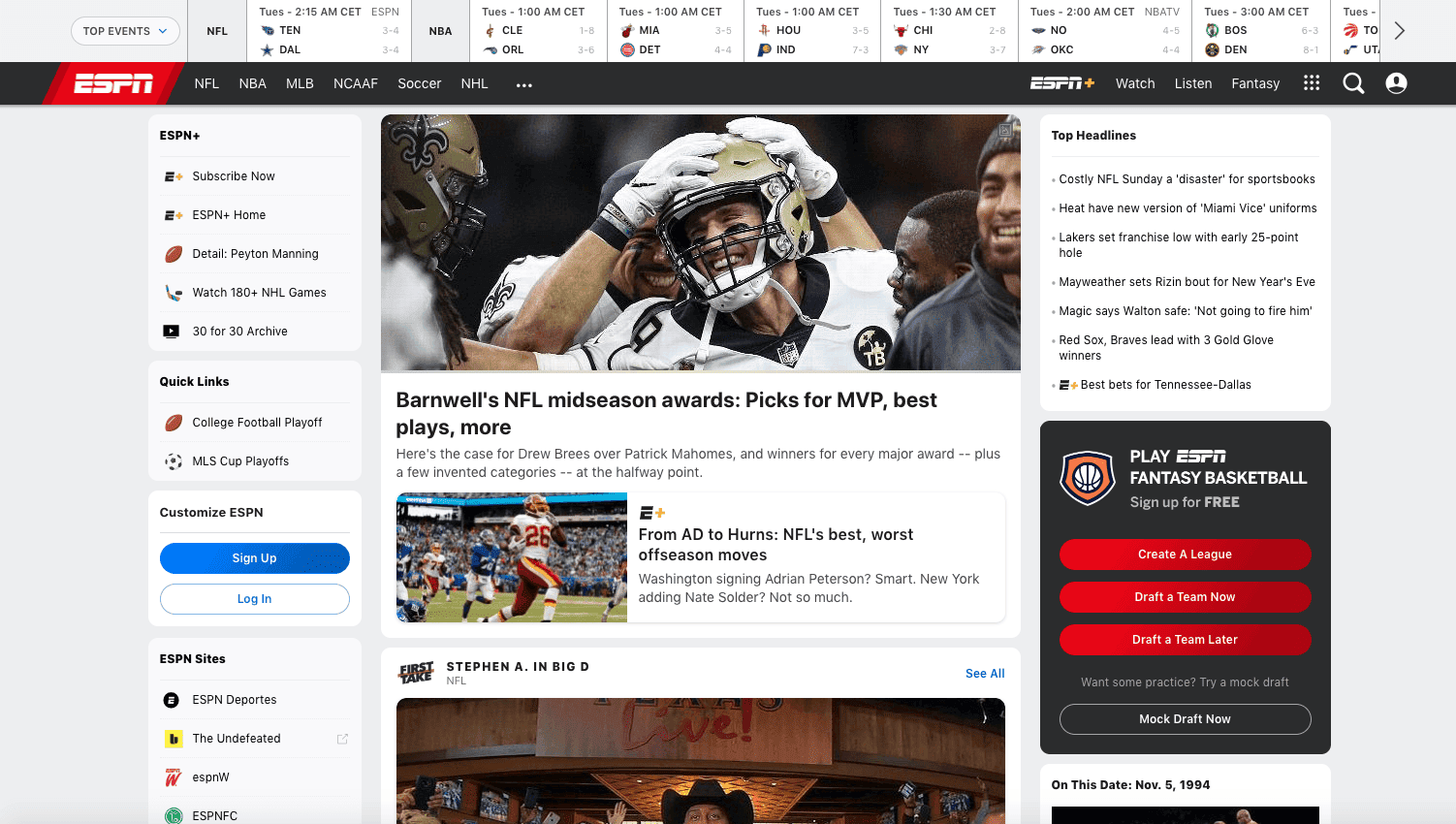
Digitization is changing sports media consumption and classic business models are put under pressure. Digital-savvy fans have increased expectations and will no longer accept a passive content experience. Most traditional publishers have difficulties in reaching and engaging these younger audiences. Mostly because of a lack in manpower and knowledge to start working with new technologies.
Innovative publishers are transforming these challenges into opportunities by constructing portfolios of new and complementary services, experiences and products. The change in consumer habits is not the pitfall, the lack of advanced and innovative products is. The key for sports publishers and rights holders is to test new business models that resonate better with their current and new audiences.
Fantasy sports players are a dream demographic for media companies because they are mostly college-educated, male, in their 20s to 40s and have a significant income at their disposal. Sports fans (and fantasy sports players in particular) watch more, engage more and buy more. This opens various ways to create new revenue streams.
Let’s explore how to generate revenue streams with fantasy sports, both directly and indirectly.
Entry fee
Users can only participate after paying an entry fee. In this case your business model is subject to national sports betting laws. DPG Media generates revenue via fantasy sports. We’ll discuss pricing strategies and corresponding fantasy game modes in a future standalone blog post.
Freemium
Freemium is a pricing strategy by which your fantasy game is free to play, but money is charged to unlock additional features.
Publishers can leverage their digital subscription model with fantasy sports. The value of a subscription is increased when you add in a premium account to the fantasy game. It’s an ideal opportunity to up sell and cross sell (read more further down). Fantasy sports and sports content go hand-in-hand and are consumed together. A fantasy sports player is actively looking for premium sports content to sharpen his skills and improve his teams.

NBC’s Rotoworld offers in-depth analysis and daily fantasy (DFS) tools as premium content.
A premium package can contain:
- Useful insights by your reporters to help users make decisions: eg. projected lineups, injury reports and news alerts. This can be content your company already produces for regular subscribers.
- More stats to delve deeper into a player’s performance and find potential fantasy sleepers (undervalued players with a high potential/risk).
- Toolkits that help users picking the best lineup, offer transfer recommendations, simulate matchups, predict price changes, etc.
- An ad-free experience.
- More game modes such as new sports or specific competitions with friends.
- Possibility to boost your profile with a custom team badge, virtual trophy cabinet and achievements.
These features can also be offered as an in-app purchase or micro transaction. Example: charge a user a small fee of €0.99 for each additional team he creates in your fantasy game. Small purchases can add up very quickly when done right.
Sponsorship
Offering a sponsorship deal to a relevant brand benefits both your fantasy game and the brand. Unlike classic advertising, a sponsorship is more a collaborative effort and taps directly into the passion of fans.

Hockey stick manufacturer Gryphon is the sponsor of the Scorrd Fantasy League
How can you shape a fantasy game sponsorship?
- A brand pays with services or reach
A sponsor can provide assets or services (stats, visuals, content) you need to make your fantasy game. Or the sponsor is in direct contact with an interesting target audience your company wants to tap into. Maybe the brand already works together with ambassadors and influencers? Even better then, make use of this! - A brand pays cold, hard cash
Fantasy sports players are a sought-after audience for a lot of brands. You can monetize your reach by asking a brand to sponsor the fantasy game. The highest status of sponsorship is a title or series sponsor. Depending on your game concept, you could create a branded Skill Index, establish a mini competition in which you play against ambassadors of the brand, and so much more! The sponsor logo can be embedded on social media posts like the “Team of the Week”. These native ads are not blocked by ad blockers.
Before you approach potential partners, try to make a comprehensive calculation of the media value your fantasy game is going to offer. Map all the communication touch points (website, social media and others) and put a value on them based on impressions or interactions. Try to be specific in the number of campaigns, mailings and posts you are going to do.
A fantasy game is an extra channel for your current sponsors. Use it to re-negotiate sponsorship renewal deals or offer it as a bonus for your best partners.
Advertising
We don’t recommend using classic banner advertising in your fantasy game because of pop-up blockers and banner blindness. It’s simply not as effective as a sponsorship deal (see above) in which you have more control and is more efficient (more impressions). A user would never share a nice ad on a website, but he will share his high-performing fantasy team with branded boarding around the virtual field.
But it’s definitely possible to offer bannering spaces. You will earn an income through Cost-Per-Click (CPC), Cost-Per-Sale (CPS) or Cost-Per-Mille (CPM). Calculate the estimated revenue streams with fantasy sports bannering can provide by looking into the mind of a player. How many gameweeks will the fantasy game last, how many times do you expect a player to check his team and make changes, etc.
E-commerce and affiliate
NBC Sports promotes its webshop on the sports news pages, but also in the Rotoworld fantasy section. In the shop fans can buy sports related gear and merchandise. Another example is ESPN Fantasy, which earns a referral bonus when someone buy tickets through its website.
These are obvious examples to monetize the reach of your fantasy game. Seek for synergies in your own media company and leverage higher buying intention and spending patterns of sports fans and fantasy sports enthusiasts. They are willing to spend more on sports-related products. So sell your own, or promote another’s.

Fantasy is an integral part of ESPN. Notice the “play fantasy” call-to-actions on the home page. On the fantasy pages you’ll find a link to a Fantasy Store and ESPN+ call-to-actions, a premium subscription which includes live sporting events, articles and fantasy tools.
Up sell and cross sell subscriptions
We would go as far as to say that every rights holder must have its own fantasy sports game. Cable television providers and over-the-top (OTT) platforms should embed up-sell and cross-sell techniques to promote their services and packages. Don’t underestimate the referral power of your current customers, who will want to invite their sport-minded friends.
Examples
- Merge the fantasy game calendar with your viewing schedule. Add live coverage icons and make it clickable to let users sign up without leaving the game.
- Add highlight videos in a user’s game center or on match pages to indicate the value of a live tv subscription.
- Enhance the live viewing experience with fantasy stats on a second screen (your app) or as an overlay.
Sports rights holders (both OTT or traditional broadcasters) see a big drop-off in viewers/visitors during the week when no live games are broadcasted. Reverse this trend with a fantasy game and give fans a reason to come back to your site or app. Fantasy sports players spend hours during non-gamedays managing their team(s). More engagement will result in more revenue opportunities. Read more: A better OTT experience with fantasy sports